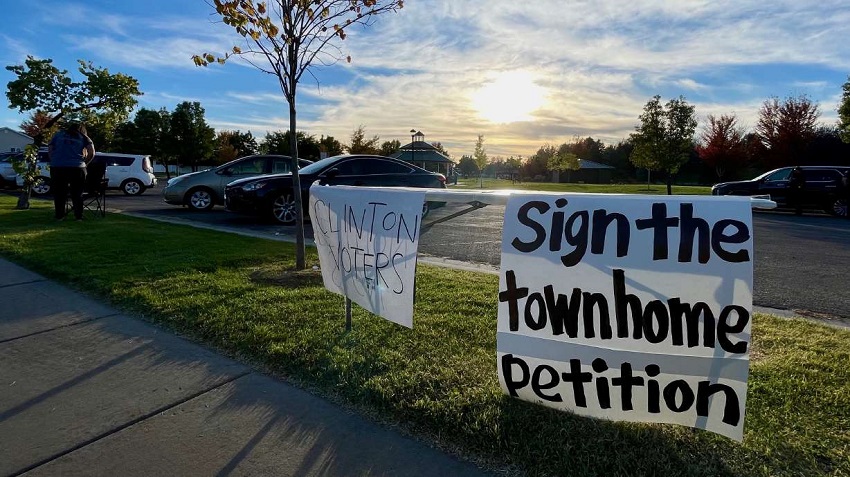OGDEN — The Weber County Sheriff’s Office is investigating allegations of misinformation and deceit in a campaign aimed at persuading residents to withdraw their names from a petition opposing a large housing development in Clinton. The investigation focuses on Gather Utah, a firm hired by developer Mike Hatch, which is accused of misrepresenting itself while attempting to convince signatories to revoke their support for the petition.
Clinton, located in neighboring Davis County, has been the site of controversy surrounding Hatch’s proposed 341-unit housing development, which includes 266 townhomes. The project has sparked opposition from residents concerned about overdevelopment and its impact on local infrastructure, particularly roads. Supporters of the petition sought to put the issue before voters in the November 2025 election by challenging a zoning decision made by the Clinton City Council in August 2023.
The petition drive initially gathered over 3,800 signatures, but following Gather Utah’s campaign to contact signatories and encourage them to remove their names, the total dropped to 3,519 — falling short of the required threshold for the petition to succeed. This discrepancy has raised concerns about the methods used by Gather Utah and whether potential misinformation played a role in the decline of valid signatures.
Lt. Sean Endsley of the Weber County Sheriff’s Office confirmed that the investigation into Gather Utah began after Davis County officials recused themselves, citing a conflict of interest. The investigation is exploring whether the firm misrepresented its affiliation, with some signatories alleging that Gather Utah representatives falsely claimed to be affiliated with the state or the city of Clinton. Others reported being told that the development plans had changed or that they were merely signing to support new plans, rather than withdrawing from the original petition.
The controversy has intensified with a lawsuit filed by Adam Larsen, a key figure in the petition effort, against Clinton city and Davis County clerks. Larsen’s suit challenges the validity of the signature count, claiming that 37 disputed signatures should be counted, which could potentially put the zoning issue on the ballot. The lawsuit alleges that some petition signatories were misled by Gather Utah’s representatives, who gave inaccurate information about the housing project’s scope and intent.
Larsen did not initiate the criminal investigation, but he has expressed support for the probe, hoping it will bring clarity to the situation. Meanwhile, Clinton City Manager Trevor Cahoon confirmed that a complaint was filed with Clinton police, which led to the involvement of Weber County authorities due to legal restrictions in the Political Activities of Public Entities Act.
Gather Utah has yet to comment on the allegations, and Hatch, the developer, has not responded to requests for comment. The investigation is still ongoing, with officials hoping to complete the probe in the coming weeks. If charges are filed, it will be up to prosecutors in either Davis or Weber counties to determine if criminal action is warranted.
As the case moves through the courts and the investigation continues, the future of the housing development remains uncertain. For now, the focus is on whether the signatures originally gathered for the petition were obtained under misleading circumstances, and whether this could alter the outcome of the legal challenge.
The situation highlights the tensions between developers, local residents, and the broader community as cities like Clinton face growing demand for housing while balancing concerns about infrastructure and quality of life. The outcome of this case could set important precedents for future citizen-led initiatives and the ways in which developers engage with the public.

